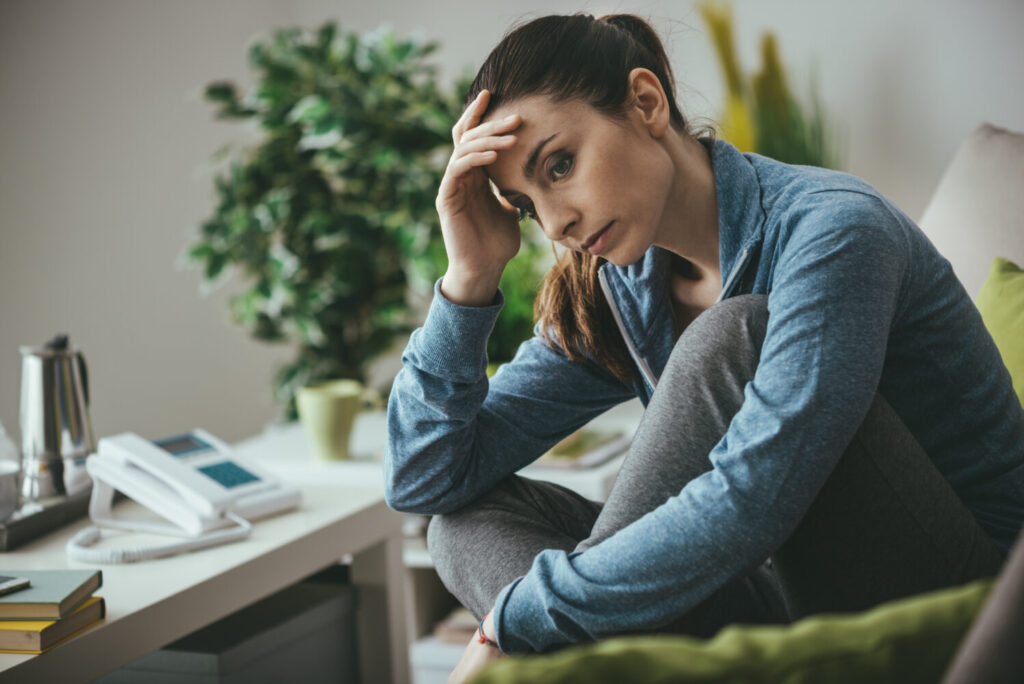Hormones have a major impact on women’s health.
They fluctuate from puberty to menopause with major swings in pregnancy and postpartum. Sometimes those fluctuations are normal and right themselves soon enough. But sometimes a hormonal imbalance is a sign of a more significant health problem.
To feel your best and avoid any bigger concerns it’s important to understand the signs of hormonal imbalance.
In this article we explain how hormones work, how you can tell if they’re imbalanced and, if they are, just what you can do about it.
What are hormones and how do they work?
Think of hormones as the body’s messengers. They help with growth and development, metabolism, libido, reproduction and mood.
Hormones are made in the endocrine glands, such as the pituitary, pineal, thymus, thyroid, adrenal glands and pancreas. Women also produce hormones in their ovaries.
When you hear “hormones,” most people think of estrogen and testosterone. But there are many other hormones flowing through your body and they impact everything from blood pressure to red blood cell production. For example, the pineal gland releases melatonin during the night hours to help us sleep. The adrenal glands secrete cortisol to manage stress.
In a nutshell, your hormones are busy. So when there’s a malfunction — a hormonal imbalance — you can bet it will raise some red flags. Physical, mental and emotional changes can all be signs of a hormone imbalance.
Let’s look at some of the most common hormonal imbalances and the signs you need to watch for.
Hypothyroidism vs Hyperthyroidism

The thyroid is a small but mighty gland.
It impacts every cell, tissue and organ in your body. Your thyroid controls your body’s temperature, affecting how quickly you burn calories and keeping vital organs like the brain and heart functioning properly.
Be on the lookout for signs of hypo or hyperthyroidism.
Hypothyroidism
Hypothyroidism is when your thyroid gland doesn’t produce enough hormones.
Signs of hypothyroidism include:
- Thinning hair
- Dry or brittle hair
- Brittle nails
- Depression
- Sleeping too much (hypersomnia)
- Feeling exhausted and fatigued
- Unexplained weight gain
These symptoms sound pretty obvious, but often they go unnoticed. That’s because people often attribute things like weight gain or thinning hair to getting older.
Note that women, people over 60 years old and those with an autoimmune disease are at greater risk for hypothyroidism.
Hyperthyroidism
On the flip side, when you’re producing too much thyroid hormone, it’s called hyperthyroidism.
Signs of hyperthyroidism include:
- Silky or greasy hair
- Anxiety
- Can’t sleep (insomnia)
- Heart palpitations
- Sweating
- Unintentional weight loss
The most common cause of hyperthyroidism is Graves’ disease, an autoimmune disorder.
Women with a family history of hyperthyroidism (especially Graves’ disease) or chronic illnesses are at higher risk.
Hormonal imbalance in the ovaries

Your ovaries produce estrogen, which is responsible for the development of female sexual characteristics. Estrogen is also important for proper functioning of the uterus and breasts and it protects bone and cardiovascular health.
If the hormones in your ovaries are out of balance, it can impact everything from your monthly period to fertility. When estrogen is on overdrive, you’ll likely notice such symptoms as:
- Breast tenderness
- Heavy periods or clotting during periods
- Irritability
- Low energy
- Low ability to put on muscle mass
- Weight gain
In some instances, hormonal imbalances in the ovaries can lead to endometriosis or polycystic ovary syndrome (PCOS).
The Office on Women’s Health reports that PCOS affects one in 10 women of childbearing age. The ovaries make the egg that is released each month during a woman’s menstrual cycle. But with PCOS, that egg may not develop as it’s supposed to or it may not be released —making PCOS a common (but treatable!) cause of infertility.
Another common cause of infertility is endometriosis, a painful disorder in which tissue similar to the tissue lining the inside of the uterus grows outside your uterus. Signs of endometriosis include painful periods, pain with intercourse and excessive bleeding.
Low testosterone levels

We tend to associate low testosterone with men. But women need testosterone too (in a smaller amount). Produced by the ovaries, testosterone in women contributes to reproductive tissue growth and repair, bone mass and red blood cell creation.
Testosterone levels decrease naturally in adult women, but if they dip too low, women may experience:
- Decreased libido
- Low energy
- Difficulty putting on muscle mass
- Poor concentration
Solutions for hormonal imbalances
If you suspect a hormonal imbalance, schedule a visit with your healthcare provider. They can test your hormone levels and work with you to find a natural solution.
Many hormonal imbalances can be addressed through nutrition, exercise, stress management or supplements.
It’s important to pay attention to changes in your overall health, menstrual cycle and mood. Don’t dismiss ongoing symptoms as signs of stress or getting older.
Work with your healthcare provider to get to the root cause of your health concerns and then tailor a plan that works for you.


